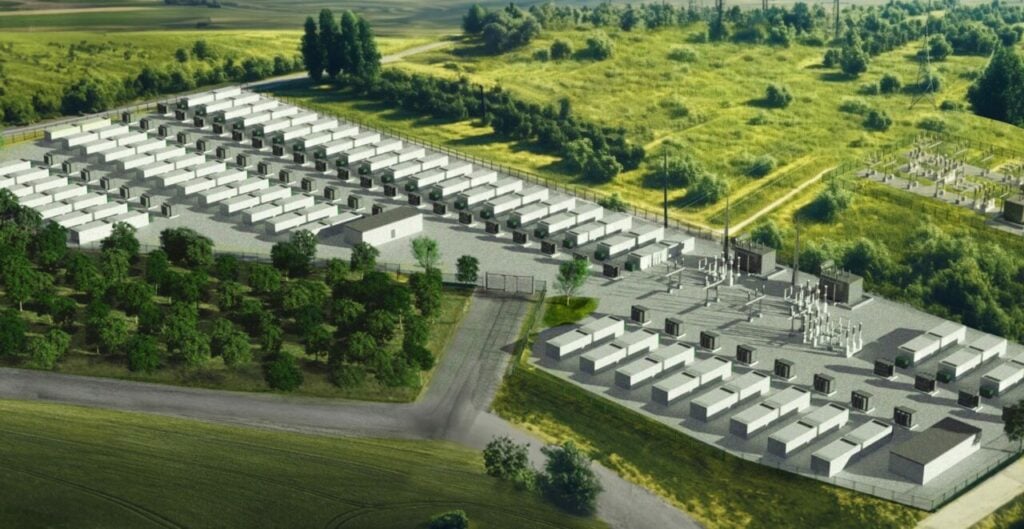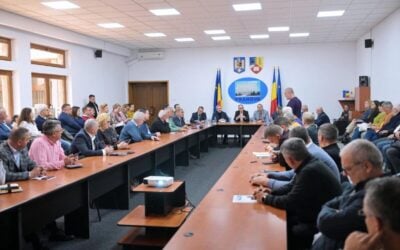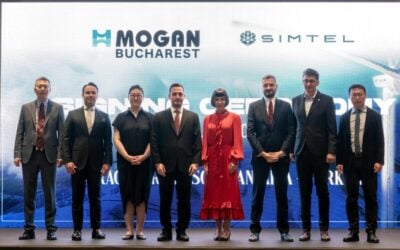
Developer Kyon Energy has claimed the largest approved BESS in Europe for a 275MWh project in Germany, just as regulators extend grid fee exemptions for energy storage by three years to 2029.
Kyon has received approval for a 137.5MW/275MWh battery energy storage system (BESS) project in Germany, it said today (13 November). The 2-hour BESS project in Alfeld, Lower Saxony, today (13 November) is scheduled to start construction in 2024 for a commissioning by the end of 2025.
Enjoy 12 months of exclusive analysis
- Regular insight and analysis of the industry’s biggest developments
- In-depth interviews with the industry’s leading figures
- Annual digital subscription to the PV Tech Power journal
- Discounts on Solar Media’s portfolio of events, in-person and virtual
The developer claimed it is the largest approved energy storage project to-date in Europe, exceeding the current largest facility in Europe by 50%, implying the current largest facility is around 183MWh.
The claim may be true of continental Europe but, as Energy-Storage.news wrote last week, several larger projects in the UK have been granted approval to begin construction too, including a 640MWh project from SSE Renewables, an 800MWh one from Innova and a 2GWh one from Carlton Power. Going off public reports SSE’s is the only one to have moved past final investment decision (FID) stage, however.
The largest operational BESS facilities in Europe are both in the UK, both owned by developer-operator Harmony Energy totalling 99MW/198MWh each.
The Alfeld project is Kyon’s second large-scale BESS project approval in the space of a few weeks, after a 58MW/116MWh system was given the green light by regulators at the end of October.
It will be built near an existing substation and will help integrate Germany’s growing renewable energy generation resources. Kyon now has permits for almost half a gigawatt of energy storage capacity in Germany.
Grid fee exemption for storage extended to projects coming online by 2029
The project announcement comes a few days after the German parliament voted on the reform of Germany’s energy law (Energiewirtschaftsrecht – EnWG) in a move which spells good news for BESS developers, as system integrator Fluence’s Lars Stephan explained in a LinkedIn post on the day of the vote last week (10 November).
Current legislation exempts energy storage assets from grid fees if they go online before August 2026, but the amendments extend that deadline by three years to August 2029, the company’s senior manager for policy and market development said.
Since developing, permitting and building projects takes “easily three years” the change is significant, he said.
“Investors, get your pipelines ready, the German energy storage market just removed a huge hurdle to large scale investments into Germany.”
Stephan said the change “…enables developers and investors a proper timeframe to not just build single projects, but entire pipelines into a booming German market. And it gives the German regulator a sufficient time frame to reform the antiquated German grid fee structure.”
Grid fees refers to treating energy storage resources as both consumers and producers of electricity, charging them for both importing and exporting electricity to the grid. The removal of this so-called “double-charging” has been called for in other European markets like the Netherlands.
Another positive aspect of the update law is that it now provides a robust mandate that regulator’s actions have to consider system flexibility including the use of energy storage as guiding targets, Stephan added.
“Given the traditionally negative view of the regulator on energy storage, including pretty bold disregard for recent legislation, including an introduction of a storage definition in the EnWG, this is an important guardrail, that will be difficult to ignore.”
Energy-Storage.news’ publisher Solar Media will host the 9th annual Energy Storage Summit EU in London, 21-22 February 2024. This year it is moving to a larger venue, bringing together Europe’s leading investors, policymakers, developers, utilities, energy buyers and service providers all in one place. Visit the official site for more info.






